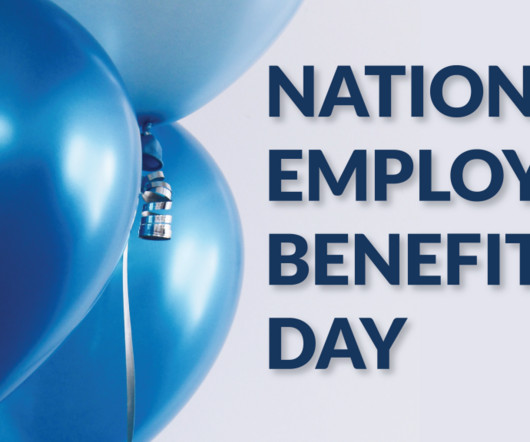4 considerations when choosing employee benefits for the first time
WEX Inc.
SEPTEMBER 12, 2023
Exploring HSAs and FSAs HSAs and medical flexible spending accounts (FSAs) let you save money because the funds you contribute to them are pre-tax. Consider the following when evaluating these accounts: Tax benefit: Contributions to HSAs and FSAs are tax-deductible and reimbursements for qualified medical expenses are tax-free.












Let's personalize your content